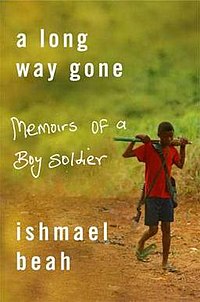 Elizabeth Gilbert is great. No, she is fantastic, amazing and totally awesome. All her books are totally involving and are of the kind that catch your attention and keep it there until you are done reading the book. Every single book of hers is somehow better than the other. She is one writer that you can tell truly enjoys writing and does so from the depth of her soul. There is so much context, so much honesty and deepness in every single one of her books that you are compelled to continue reading them.
This book is a simply written book (like most all of her books are) of two small fishing islands. The main character is a young, spirited and feisty young woman named Ruth. The whole story has a very nice and easy going narrative, plausible occurrences and everyday dialogues. But what makes the book good is the ending. It is totally unexpected, out of the blue and you realize you would never have thought that the book could end the way it does. The whole novel is very original, full of wit and spark and always true to the authors nature, plenty of humor as well.
Elizabeth Gilbert is great. No, she is fantastic, amazing and totally awesome. All her books are totally involving and are of the kind that catch your attention and keep it there until you are done reading the book. Every single book of hers is somehow better than the other. She is one writer that you can tell truly enjoys writing and does so from the depth of her soul. There is so much context, so much honesty and deepness in every single one of her books that you are compelled to continue reading them.
This book is a simply written book (like most all of her books are) of two small fishing islands. The main character is a young, spirited and feisty young woman named Ruth. The whole story has a very nice and easy going narrative, plausible occurrences and everyday dialogues. But what makes the book good is the ending. It is totally unexpected, out of the blue and you realize you would never have thought that the book could end the way it does. The whole novel is very original, full of wit and spark and always true to the authors nature, plenty of humor as well.
Book Review:
“Honestly, was there any reason a smart fisherman had to wake up at four A.M.? There had to be a better way.” —Stern Men
Off the coast of Maine lie the remote islands of Fort Niles and Courne Haven. The two are virtually identical, have no near neighbors, and are separated only by a shallow channel less than a mile wide. Yet, for generations, their residents have been divided by a bitter and occasionally bloody feud begun by a long-forgotten man of questionable sanity. So by 1976, the only thing that the hard-drinking, stubborn, and proud lobster fishermen of Fort Niles know for certain is that they hate the hard-drinking, stubborn, and proud lobster fishermen of Courne Haven . . . and vice versa. What neither group realizes, however, is that outside forces are conspiring to change their way of life forever, and their hope for salvation just might lie in the hands of a very unusual young woman.
Ruth Thomas was born on Fort Niles in 1958 during “a week of legendary, terrible storms” (p. 12) and their fury established the tenor of her early years. Her parents—Stan, a native Fort Niles lobsterman, and Mary, the illegitimate, quasi-granddaughter of the island’s wealthy mainland patrons—separated when their daughter was just nine, and Ruth has been struggling against her mother’s attempts to win her away from Fort Niles ever since.
Up until she turned eighteen, Ruth was coerced into attending an elite boarding school in Delaware with girls “who fussed over their figures annoyingly, uninterruptedly, odiously” (p. 46). And, upon graduation, she proclaims her decision to eschew college in favor of joining her father, Stan, on his lobster boat as a stern man. No one is pleased by this announcement—not even Ruth who, honestly, finds both lobster fishing and her father’s company profoundly boring. Fortunately, her father has already engaged a stern man for the season, and Ruth is left to fume insincerely over her disappointment.
Though quick with a lie when it suits her, Ruth is honest with herself and knows two things for certain: she loathes the Ellises and she very much likes the solid, silent figure and blond eyelashes of one Owney Wishnell—a descendent of Courne Haven’s finest lobster-fishing family and therefore one of her father’s most hated rivals. Equipped with this knowledge, Ruth sets out in search of her destiny.
To the naked eye and especially to Cal Cooley—the Ellis family’s eyes and ears and Ruth’s nemesis—it might seem as if she were simply idling the summer away. Even Ruth herself is unsure what course her meanderings will take, but there is one person on the island who is confident they are the prelude to greatness. And, in the end, an elephant’s tusk, an antique lighthouse lens, and a drunken foray on Courne Haven point the way toward happiness and the salvation of the world Ruth loves.
In her sparklingly original debut novel, Elizabeth Gilbert’s indomitable heroine takes on a world hitherto run by men and achieves a triumph that trumps even her most ardent naysayers. Told with wit and compassion, and peopled by an endearingly quirky cast of characters, Stern Men also offers a tantalizing early glimpse of the writer whose own story would go on to strike a chord with millions of readers.












